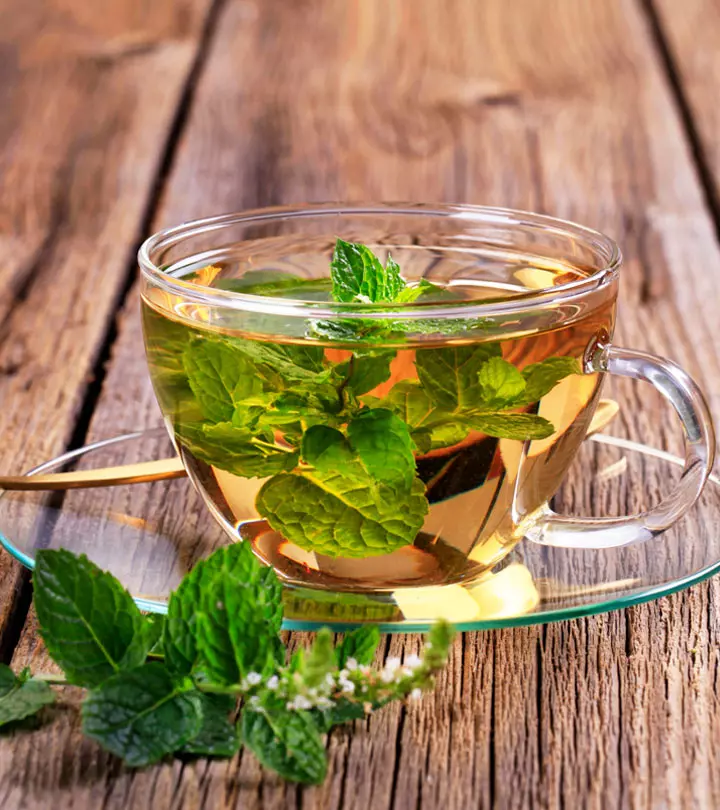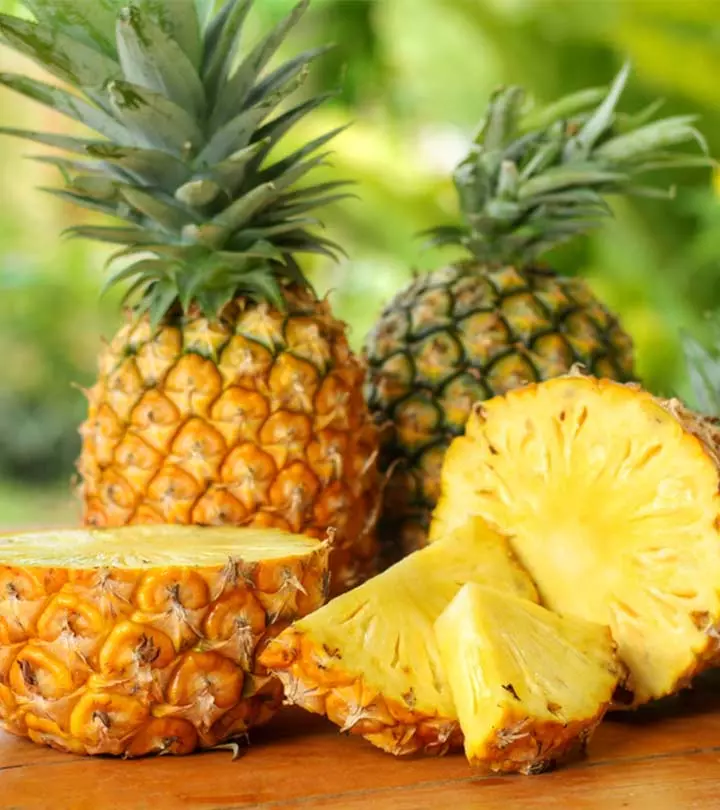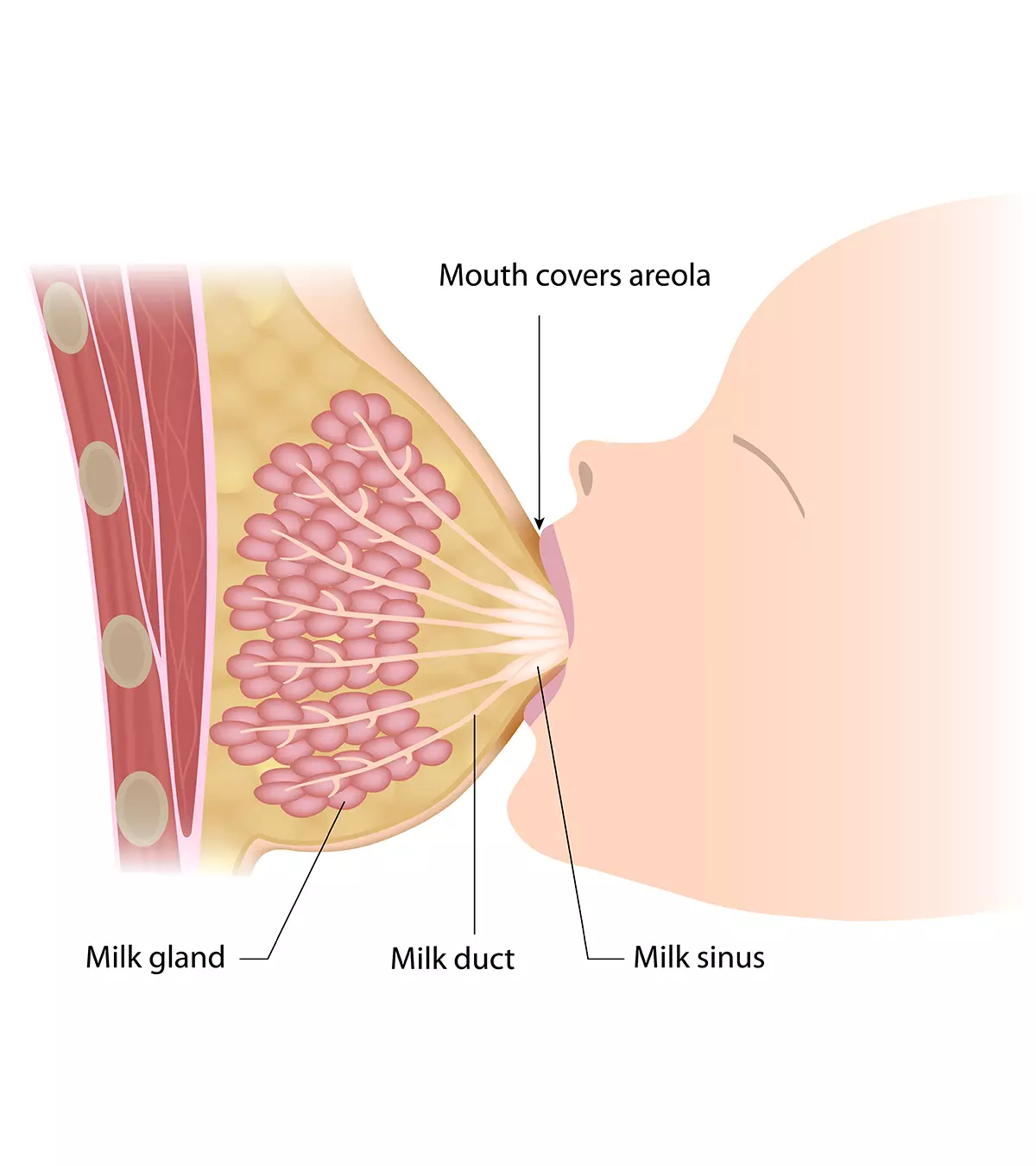
Image: Shutterstock
Losing extra weight after delivery is important for a nursing mother’s health. Hence, several mothers try losing their pregnancy weight with a healthy diet, exercise, and sometimes, herbal supplements, such as Garcinia. However, you might want to know if it is safe to take Garcinia cambogia during breastfeeding.
The use of herbal supplements for weight loss has been prevalent for ages. However, clinical studies supporting their safety and efficacy for pregnant women are sparse. Thus, using herbal remedies or supplements may pose health risks for the mother and her nursing baby. Read on as we give you an insight into the safety of Garcinia cambogia for lactating women and the reasons you should avoid its use when nursing.
Key Pointers
- Breastfeeding mothers should avoid taking Garcinia Cambogia as it may have adverse effects on their nursing baby’s appetite and blood sugar levels.
- Garcinia Cambogia may interfere with postpartum medications and affect the mother’s blood sugar levels.
- The supplement reduces appetite, which is not advisable for lactating mothers who require a nutrient-rich diet for their and their baby’s health.
- Due to a lack of research on the safety of Garcinia Cambogia during breastfeeding, it is best to avoid taking it altogether.
What is Garcinia Cambogia?
Garcinia cambogia is a plant that belongs to the family of Clusiaceae
. The fruit rind of the garcinia plant is mainly used to make medicine or supplements.
Various researches that have been carried out on the plant say that it might prevent the storage of fat in the body. However, there is no concrete evidence to this effect (1).
The fruit rind has hydroxycitric acid (HCA), which inhibits the production of Lyase, an enzyme that aids in the conversion of carbohydrates into fat. Also, regular usage of garcinia may help control or even curb your appetite.
Generally, garcinia and HCA are well tolerated in adults, with occasional reports of gastrointestinal discomfort.
 Quick fact
Quick factIs Garcinia Cambogia Safe While Breastfeeding?
Medical professionals recommend to avoid the intake of garcinia during breastfeeding. It has no specific lactation-related uses.
Now, you might wonder why this natural supplement with no artificial ingredients, chemicals or binders in it, is not suitable for breastfeeding mothers. Know the reasons.
Reasons To Avoid Garcinia Cambogia During Breastfeeding
For many reasons like the below, it is better to stay away from garcinia cambogia extract during breastfeeding.
1. Affects The Nursing Baby

Image: Shutterstock
Ongoing studies claim that a baby may get affected if the nursing mother takes garcinia cambogia. They say that HCA passes on to the little one to show ‘garcinia effects’ such as appetite-loss and high metabolic rate. It may also affect the baby’s blood sugar levels.
2. Unhealthy Interactions In Mother’s Body
- After pregnancy, your body may react differently to supplements. They may interfere with your postpartum medications.
- HCA makes changes to the functioning of the metabolic system and, therefore, affects the nutrient supply. Moreover, HCA has an adverse effect on the blood sugar levels of the nursing mothers.
3. Reduces Appetite
Being a weight loss supplement, garcinia reduces appetite, which is not advisable while breastfeeding. In fact, doctors recommend prioritizing proper and rich nutrition during this time, as your milk is the only source of nutrients for the little one. If the appetite is lost, lactating mothers will not have enough energy to deal with the changes happening in their bodies, and it may also impact their milk production while nursing.
4. Lack Of Research

Image: Shutterstock
No research supports the safety and efficacy of garcinia cambogia in infants and nursing mothers. More medical studies are required to accurately estimate the amount of the herb’s extract that can transfer from mothers to their infants through breast milk. The lack of extensive research on the garcinia concentration levels in breast milk makes it a supplement to be avoided while breastfeeding. In fact, any natural products or supplements need to be avoided if there is not enough research.
 Experts say
Experts sayConsidering these possible side effects and a lack of scientific evidence, it is good to refrain from consuming garcinia cambogia during breastfeeding. Make healthy food choices and exercise to lose weight. If you still want to take it, consult your doctor for personalized medical advice before consuming garcinia extracts while breastfeeding.
Frequently Asked Questions
1. Should a lactating mother totally avoid weight loss supplements?
A lactating mom is advised to avoid weight loss supplements. Concentrating on your infant’s health is more important than your body weight.
2. Does FDA approve dietary supplements?
A nod from the US Food and Drug Administration is not needed for the pre-marketing approval of dietary supplements. Even though manufacturers have to ensure the safety of such supplements, they need not prove their efficacy and safety.
3. Can Garcinia Cambogia supplements affect the quality or quantity of breast milk?
No reports state that Garcinia Cambogia affects the quality or quantity of breast milk (2).
4. Are there any alternative weight loss supplements or strategies that are safe during breastfeeding?
If you want to include weight loss supplements during breastfeeding, it is important to first take the go-ahead from your doctor. Other alternative methods include managing your diet and physical activity to manage weight. Add fruits, vegetables, healthy fats, proteins, whole-wheat bread and rice, low-fat milk, yogurt, and loads of water to your diet. Incorporate moderate physical activity like brisk walking, as this will help you lose weight and still be healthy and fit (3).
Since insufficient research exists on the effect of garcinia cambogia on lactating women, it is not advisable to take this supplement. Consuming garcinia cambogia during breastfeeding may adversely affect the nursing baby and cause unhealthy interactions in the mother’s body. Moreover, the herbal supplement reduces appetite, causing mothers to eat less, which is unhealthy during breastfeeding. Besides, manufacturers may not mention the ingredients added to the supplement on the product’s label, further raising safety concerns and a need for more research to verify the product’s quality. If you wish to lose weight after pregnancy, breastfeeding your baby is the best way. It increases your metabolism and helps you burn calories. So, eat healthily and exercise regularly to lose your pregnancy weight eventually.
Infographic: Why Not To Use Garcinia Cambogia When Breastfeeding
Garcinia cambogia products are often sold as weight loss supplements, making them desirable to women trying to lose weight after pregnancy. However, such supplements often lack adequate safety data regarding pregnancy or lactation. The infographic below summarizes the various reasons Garcinia may not be suitable for breastfeeding women.

Illustration: Momjunction Design Team
References
- Fabiola Marquez et al; (2012); Evaluation of the safety and efficacy of the hydroxycitric acid or Garcinia Cambogia extracts in humans.
https://pubmed.ncbi.nlm.nih.gov/22530711/ - Garcinia
https://www.ncbi.nlm.nih.gov/books/NBK501896/#:~:text=Drug%20Levels%20and%20Effects&text=No%20data%20exist%20on%20the - Losing weight while breastfeeding
https://www.eatright.org/health/pregnancy/breastfeeding-and-formula/losing-weight-while-breastfeeding - Garcinia Cambogia.
https://www.nccih.nih.gov/health/garcinia-cambogia
Community Experiences
Join the conversation and become a part of our nurturing community! Share your stories, experiences, and insights to connect with fellow parents.
Read full bio of Charmaine Dominguez
Read full bio of Swati Patwal
Read full bio of Rohit Garoo
Read full bio of Anindita Ghatak



















